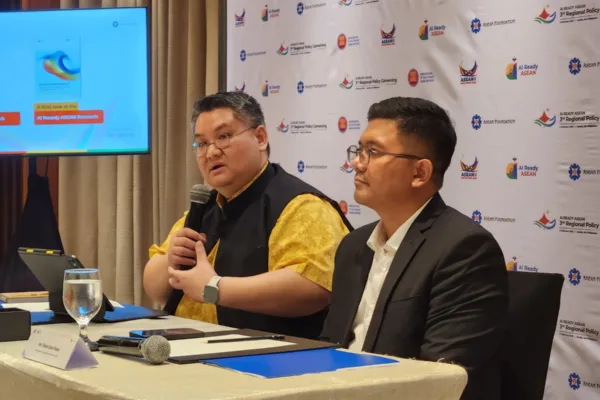MoneyHero Limited, a Nasdaq-listed personal finance platform operating in Southeast Asia, has reported its first profitable quarter — a milestone that signals both the resilience of its regional operations and the growing importance of fintech in markets like the Philippines.
The Singapore-based company posted a net income of US$0.2 million in the second quarter of 2025, reversing a net loss of US$12.2 million in the same period last year. The turnaround was driven by a leaner cost structure, smarter use of artificial intelligence (AI), and stronger performance in its higher-margin insurance and wealth management verticals, which now account for 27% of overall revenue.

For the Philippines, where MoneyHero operates through its local brand Moneymax, the results carry particular weight. The country accounted for nearly 10% of group revenue in Q2, generating US$1.7 million, even as overall revenue slipped year-on-year due to the company’s deliberate pullback from lower-margin credit card products.
From losses to profitability

Chief Executive Officer Rohith Murthy framed the results as proof of the company’s sustainable strategy, saying, “We set out to reshape MoneyHero for durable, profitable growth, and our Q2 results reflect the significant progress we have made. Optimized revenue mix, improving margins, and disciplined operations serve as the compounding levers driving us forward in the right direction.”
“Our product engine continues to deliver momentum. Car Insurance is scaling with real-time pricing and end-to-end digital journeys in Hong Kong and Singapore, while Travel Insurance has been streamlined to a three-click purchase flow, significantly lifting completion rates. In Wealth, we broadened our marketplace through collaborations with licensed digital-asset platforms, providing consumers more choice while maintaining a disciplined, compliance-first approach,” he added.
Group membership across MoneyHero’s platforms rose 33% year-over-year to 8.6 million users, with the Philippines representing the largest share. The Philippines strengthened its position as the largest member base, now at 5.9 million members (68% of group total), alongside 1.3 million Monthly Unique Users, highlighting strong consumer adoption and engagement.
This surge mirrors the Philippines’ broader fintech adoption, where digital wallets, lending apps, and insurance marketplaces are experiencing rapid growth, particularly among younger, mobile-first consumers.
Fintech adoption in the Philippines

Moneymax, MoneyHero’s local brand, has become a popular comparison site for car insurance, loans, and credit cards. In recent years, it has also expanded into digital-first insurance products for Filipinos seeking simpler, more transparent coverage.
According to the Bangko Sentral ng Pilipinas (BSP), around 60% of adult Filipinos now use some form of digital financial service, a figure that continues to rise. For platforms like Moneymax, this means a growing audience eager for financial literacy, convenience, and affordable access to financial products.
Danny Leung, MoneyHero’s interim CFO, highlighted this shift: “Revenue quality is improving as we expand higher-margin segments like insurance and wealth. In markets such as the Philippines, this aligns perfectly with demand for affordable coverage and growing interest in investments.”
Insurance revenue for the group jumped 18% year-on-year to US$2.6 million, while wealth revenues grew to 13% of total revenue.
The AI advantage

One of the company’s most significant moves has been embedding AI across its platforms. From optimizing reward costs to improving loan and insurance approval quality, AI tools are reducing customer acquisition costs and enhancing service efficiency.
In the Philippines, this could translate to faster, more accurate credit assessments and simpler insurance application processes — a critical factor in a market where trust and convenience are often barriers to adoption.
Murthy noted that AI-enabled improvements have allowed the company to keep headcount flat while scaling volumes, a sign of how automation can complement, rather than replace, human decision-making in fintech.
A strengthening ecosystem

MoneyHero also strengthened its partner ecosystem, with over 270 commercial partners across Southeast Asia. In the Philippines, this includes collaborations with banks, insurers, and lending firms to expand their digital footprint.
Its “Best-Of Awards” in Singapore and the upcoming launch of Hong Kong’s Credit Hero Club with TransUnion highlight how the company is building credibility and consumer trust. Similar initiatives may be rolled out in the Philippines, where consumer credit scoring remains a developing area.
What it means for the Philippines

While group revenue dipped to US$18 million in Q2 (down 13% YoY), the Philippine market remains strategically vital. The country not only delivered strong user growth but also demonstrated the highest engagement rates.
Industry observers note that MoneyHero’s profitability marks a positive signal for Philippine fintech players, many of whom are still spending heavily to acquire customers. By shifting to higher-margin verticals and focusing on responsible growth, the company is showcasing a path to sustainability that local startups could emulate.
As Murthy summed it up: “In an age of digital acceleration, our role is to give consumers confidence in their financial decisions — and that can change lives. Looking ahead, we will continue to scale our higher-margin Insurance and Wealth verticals, with mix expected to make up approximately 30% of Group revenue by the end of the year. We will continue to strategically invest in our business — balancing disciplined cost management with targeted investments in product innovation, AI capabilities, and long-term growth opportunities.”
With AI-powered efficiency, a stronger revenue mix, and a dominant foothold in the Philippines, MoneyHero is positioning itself not just as a fintech aggregator, but as a key driver of financial inclusion in one of Asia’s fastest-growing digital economies.








